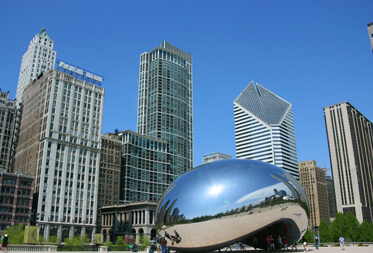Cancer is one of the greatest medical challenges of our time. According to the World Health Organization (WHO), it is the second-leading cause of death worldwide, accounting for about 1 in 6 of all deaths–a total of over 8.8 million people in 2015. It’s also been the subject of considerable biomedical research in recent decades, leading to significant advances in treatment and prevention options, so if you’re a foreign medical graduate, now is one of the most exciting times to train for a career in oncology in the United States. Not only will you be making a positive difference in the lives of patients struggling with the disease, but you will also have the chance to learn about the most cutting-edge techniques, technologies, and therapies used for treating the disease. Read on to learn more about the road to a career in oncology and what you need to do to pursue this specialty area of medicine.
Oncology Residency and Fellowship Training Options for Foreign Medical Graduates
As an aspiring oncology specialist looking for residency and fellowship training in the United States, there are two training paths for you to choose from. Both offer excellent training for foreign medical graduates, so you can’t go wrong either way!
- Option 1: Internal Medicine Residency (3 years) + Oncology Fellowship (2-3 years)
The traditional route to becoming an oncology specialist is to start by completing a three-year US medical residency program in internal medicine before completing a three-year fellowship in Hematology and Oncology or (less commonly) a two-year fellowship program in Oncology. For foreign medical graduates, this can be a great option, especially since the latest data from the National Resident Matching Program (NRMP) indicates that internal medicine is the most common residency specialty area for foreign medical graduates, accounting for about 43.9 percent of all successful matches in 2015. Spending three years studying internal medicine can also be helpful if you’re not yet sure which area of oncology you want to focus on for your career, because an internal medicine residency will give you in-depth insight into all of the different body systems that may be affected by cancer.
Although the most common fellowship option for aspiring oncology specialists in the United States is Hematology and Oncology, many institutions have also been adding more specialized programs, including some that last only a single year and are designed for physicians who have already completed both an internal medicine residency and a general oncology fellowship. Here are a few of the more specialized topics that you might pursue in a fellowship:
- Breast Surgical Oncology
- Cancer Anesthesia
- Cancer Rehabilitation
- Gynecologic Oncology
- Head and Neck Surgical Oncology
- Leukemia
- Lymphoma / Myeloma
- Musculoskeletal Oncology
- Neuro-Oncology
- Oncologic Emergency Medicine
- Onco-Nephrology
- Urologic Oncology
- Option 2: Partial Internal Medicine Residency (1 year) + Full Radiation Oncology Fellowship (4 years)
An increasingly popular option, which has become available more recently, is to spend your first year in a medical residency in a generalist subject–such as internal medicine, surgery, or a related field–before advancing to a four-year residency program in radiation oncology. One of the advantages of this option is that the total training time is only five years, and you can start practicing as an oncology specialist as soon as you finish, without completing a fellowship program beforehand. However, it is important to note that you’ll have to go through the NRMP residency matching process again after the first year of your residency, which can be challenging and time-consuming, especially considering the obligations you’ll have as a first-year resident in your generalist program.
What to Expect from Oncology Residency and Fellowship Programs
Although oncology residency and fellowship programs differ in their scheduling and organization, there are certain things you generally expect from the training. After having gained a foundation of knowledge in your full or partial internal medicine residency program, you’ll have the chance to focus more specifically on oncology care, including cancer mechanisms, diagnostic imaging, treatment planning, side effect management, recurrence prevention, and even healthcare policy, among other topics. In some programs, you may have the opportunity (or be required) to conduct either basic, translational, or clinical research. With most programs, by the time you finish, you’ll be ready to achieve subspecialty certification in Medical Oncology and/or Hematology through the American Board of Internal Medicine (ABIM).
Pre-Residency Planning for a Career in Oncology
Oncology residency and fellowship programs can be highly competitive, so as a foreign medical graduate, you need to be able to show residency programs that you are a strong candidate. One way to strengthen your candidacy is to complete a graduate externship in oncology before you try to get matched. Completing a program like this can help you show an application reviewer that you are truly committed to the specialty area, and it can give you something to talk about during your residency interviews. It will also allow you to make connections with attending physicians in the United States, who may be able to write letters of recommendation to support your application.
FMG Portal offers graduate externships for foreign medical graduates in a wide range of specialty areas, including oncology. Contact us today to learn more about our programs!

















